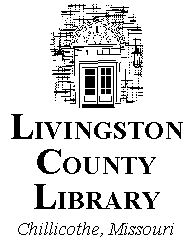The Context

Livingston County Library serves a rural section of northern Missouri in the county seat, Chillicothe, a town dating from 1837 with a current population of 8,804. Chillicothe is a town of brick-fronted buildings and facades more Western than Midwestern (the county is in the heart of Jesse James country). Both the town and county are growing, but not fast. Some 14,592 people live in the 500 square miles of Livingston County–a statistic that library director Karen Hicklin quotes frequently and precisely. Although Chillicothe is surrounded by large-scale agriculture, its residents are employed in a variety of occupations. According to 1990 census figures, 62.2 percent of the county is employed in service jobs, many connected to agriculture. Everyone in the town seems to know everyone else. Everyone certainly seems to know the library director, who makes a point of being involved in the community, knowing the public she serves, and making sure the library is something that the county residents know and care about.
The library operates from one building, a former post office in the center of Chillicothe, with a staff of 12, including three librarians. The building was refurbished to accommodate the library’s needs; individual rooms, such as an old federal court room, have been renovated or restored. The collection contains about 53,000 items. Annual circulation for 1995 was 166,777–up 45 percent over the past five years. The library does not have a reference desk per se, so it does not keep statistics for reference questions. Funding for the library is provided by a tax levy of 27 cents per $100 of the county’s tax revenue of $92,319,382; this amounts to support of $17.08 per capita. Other sources, including funds raised by the Friends of the Library, also provide income. The library sets its own tax levy rate, without any direct involvement by the county government. This is significant, for it has enabled the library to rely on the support of the voters–and not solely on the good will of a board of supervisors or on an appropriation from the county administrator.

